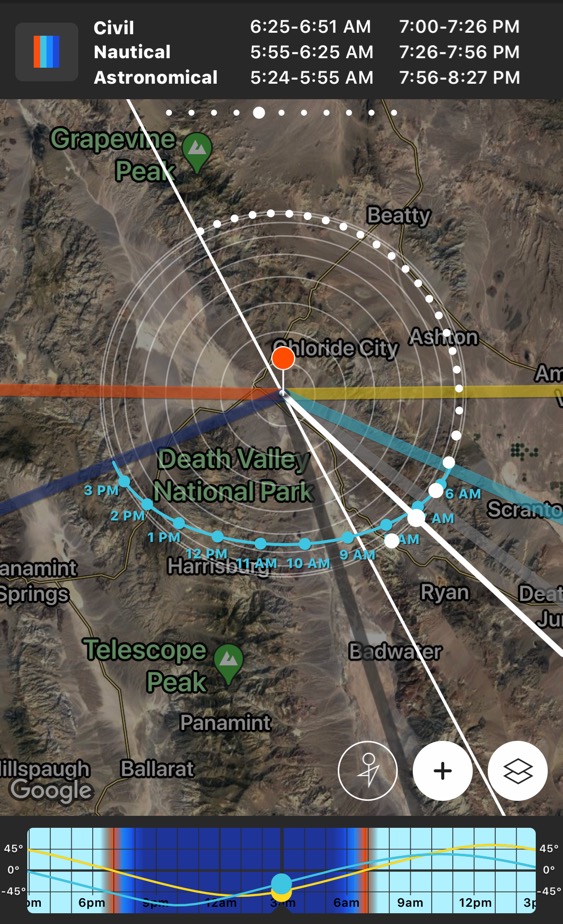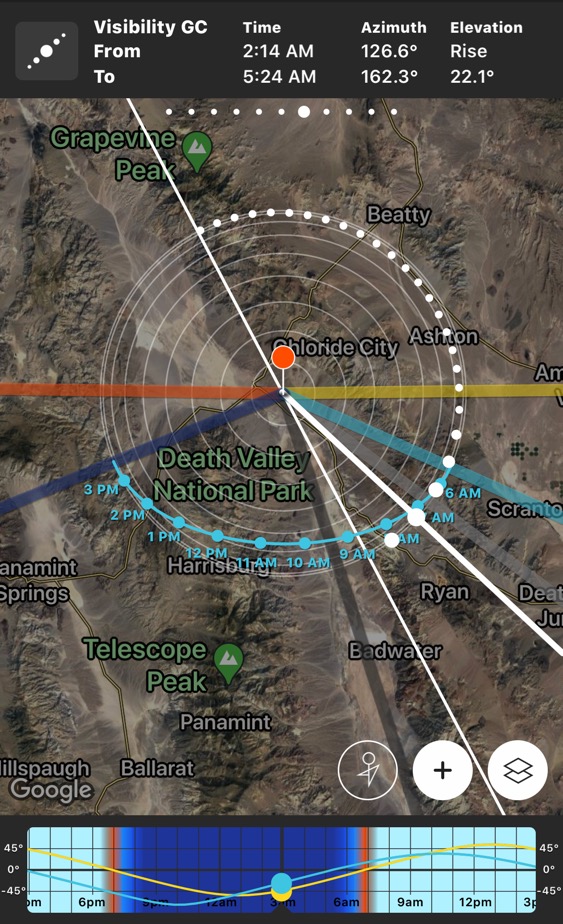May 05. 2019 • Category:
How To | Shooting TipBest Time at Night to Photograph the Milky Way
Photographing the Milky Way requires a dark sky to provide the best opportunity for success. Therefore, knowing the optimal timeframe to photograph the Milky Way is a key factor to success. The biggest obstacle to a dark sky is reflected light from the sun. Even the smallest amount of sunlight in the twilight sky will overpower all but the brightest stars. There are three periods of twilight after the sun has set: Civil, Nautical, and Astronomical, with a dusk after each period. The darkest period during the night is the Astronomical Dusk which follows the Astronomical Twilight. At Astronomical Dusk there is no sunlight affecting the night sky. This final dusk, Astronomical Dusk, typically occurs 1.5 to 2.5 hours after sunset. Usually, the best time to obtain the darkest night skies is between two hours after sunset and two hours before sunrise.
Although following the general rule of photographing a starry night two hours after sunset and two hours before sunrise is convenient sometimes you may want a more precise determination of Astronomical Twilight. For this, I use the PhotoPills iPhone app. Using the PhotoPills' iPhone app, open the Planner feature, and you can easily determine schedule of the twilights. PhotoPills will allow you not only to determine the current day but any day in the future the twilights. PhotoPills is a remarkable tool for planning a Milky Way shoot as it offers so many features to assist you in making proper plans.
In the example below, the PhotoPills app shows that Astronomical Twilight ends at 8:27 p.m. thus the beginning of Astronomical Dusk and the beginning of the darkest night sky.

The PhotoPills example below shows that if you were in Death Valley National Park on this particular day the Galactic Core of the Milky Way would be visible from 2:14 a.m. to 5:24 a.m. This is very helpful so that you when the Milky Way core is visible and can plan accordingly to arrive an hour before.

Tags: milk way, milkyway, nightphotography, Astrophotography, milky way photography, Photopills





